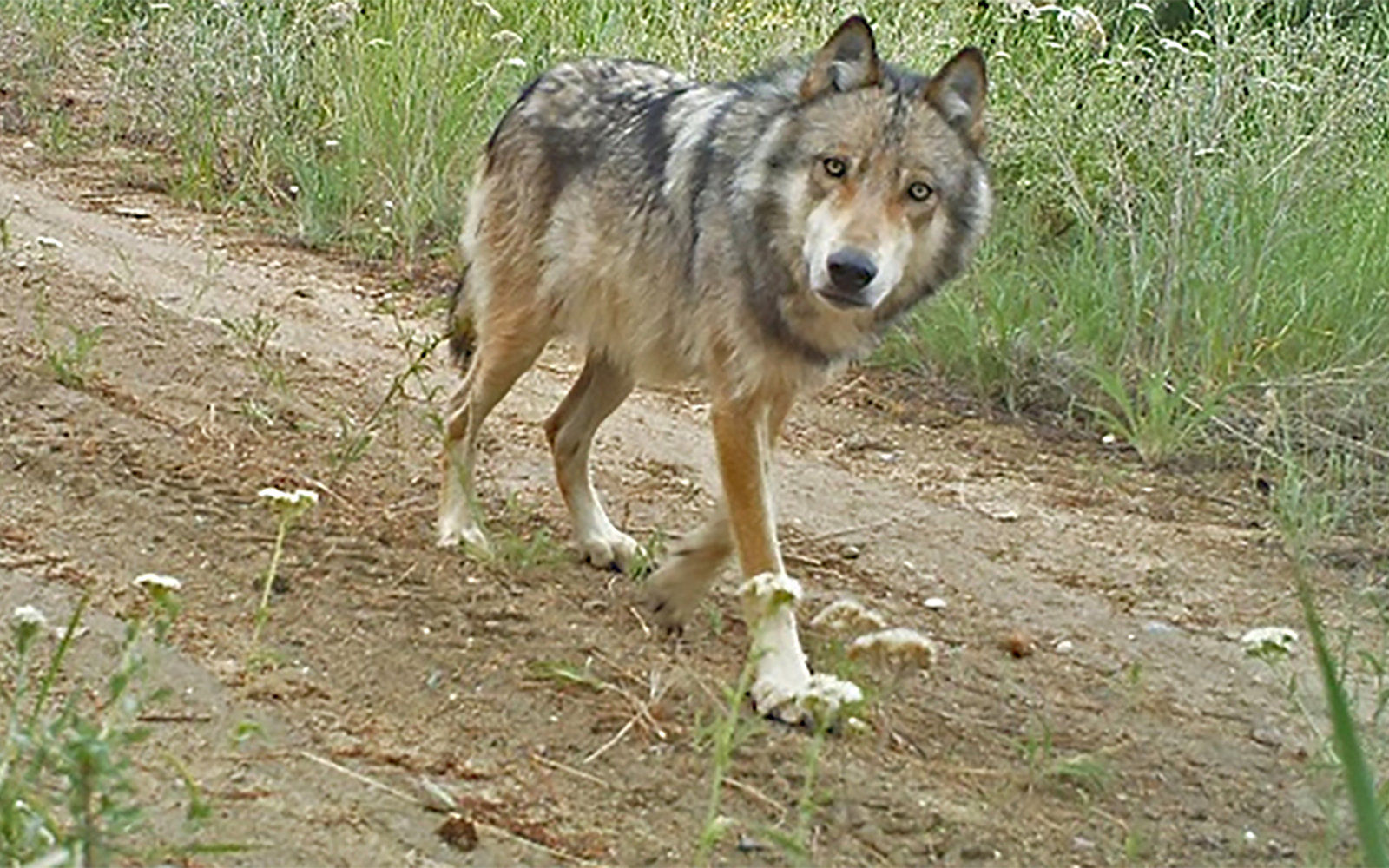FOR IMMEDIATE RELEASE
August 5, 2022
Contact:
Nick Cady, Cascadia Wildlands, (314) 482-3746, nick@cascwild.org
Sophia Ressler, Center for Biological Diversity, (206) 399-4004, sressler@biologicaldiversity.org
Lizzy Pennock, WildEarth Guardians, (720) 600-3833, lpennock@wildearthguardians.org
Jocelyn Leroux, Western Watersheds, (406) 960-4164, jocelyn@westernwatersheds.org
Tim Coleman, Kettle Range Conservation Group, (509) 675-3556, tcoleman@kettlerange.org
Requirements for Nonlethal Measures Sought for State Endangered Species
OLYMPIA, Wash. — Five conservation groups filed a lawsuit today asking a state court to enforce Gov. Jay Inslee’s order directing state wildlife officials to enact wolf management rules. The rules should have outlined what steps must be taken before wolves can be killed for conflict with livestock.
Today’s filing notes that Gov. Inslee ordered the Washington State Department of Fish and Wildlife to undertake a formal wolf rulemaking process in 2020, following a petition from conservation organizations. The petition asked the state to require the use of nonlethal deterrence measures by livestock operators before authorizing the killing of wolves involved in livestock conflicts. While the department started this process, in July the state’s wildlife commission voted 5-4 not to enact the proposed rules.
“Gov. Inslee recognizes that Washington needs science-based nonlethal strategies to protect wolves and livestock, but some wildlife commissioners are ignoring his request,” said Sophia Ressler, a staff attorney at the Center for Biological Diversity. “We’re asking the court to recognize the governor’s authority and require commissioners to finally approve wolf rules they were supposed to finalize long ago. We need rules that put a check on the state’s trigger-happy approach to managing imperiled wolves.”
The groups filed their May 2020 petition in response to state officials’ repeated killing of wolves on behalf of one livestock owner in northeast Washington, where the lack of adequate conflict-deterrence measures has resulted in chronic conflicts. The petition also aimed to prevent chronic conflict areas from developing elsewhere in the state by standardizing accountable and enforceable measures statewide.
“Unfortunately, by failing to take action to promulgate science-based wolf management regulations despite Gov. Inslee’s clear direction, the WDFW Commission has aligned itself with anti-wolf minority interests,” said Nick Cady, legal director for Cascadia Wildlands. “We were only asking the agency to follow its own guidelines.”
“Washington’s wolves needed the commission to put enforceable rules in place requiring livestock producers to use effective nonlethal conflict mitigation measures,” said Lizzy Pennock, carnivore coexistence advocate at WildEarth Guardians. “Instead, five members of the nine-member commission wasted two years of work and voted for the status quo: irresponsible livestock grazing and government-sponsored wolf killing.”
“The Washington Fish and Wildlife Commission’s July decision to not enact a rule to better protect Washington’s wolves from agency killings was not only disappointing, but illegal,” said Jocelyn Leroux, Washington and Montana director with Western Watersheds Project. “The commission ignored Gov. Inslee’s direction to create a rule that would ensure improved livestock-wolf conflict management and save wolves now and into the future.”
“Rulemaking is an important process in the governance of public resources, in this case, gray wolf recovery in Washington,” said Timothy Coleman, executive director for Kettle Range Conservation Group. “An essential element of a rule is to establish a level playing field, that is, clearly defining standards and processes that government and the public must follow. The current wolf management strategy of the Department of Fish and Wildlife is more like a game of rugby, whatever comes out of the scrum of pro and con wolf interests is how the game is played. But that’s arbitrary and it’s really more about who has more mojo rather than a fair set of rules that everyone abides by – that’s what this petition is striving to achieve.”
Today’s lawsuit was filed in in Thurston County Superior Court on behalf of the Center for Biological Diversity, Cascadia Wildlands, Kettle Range Conservation Group, Western Watersheds Project and WildEarth Guardians.

